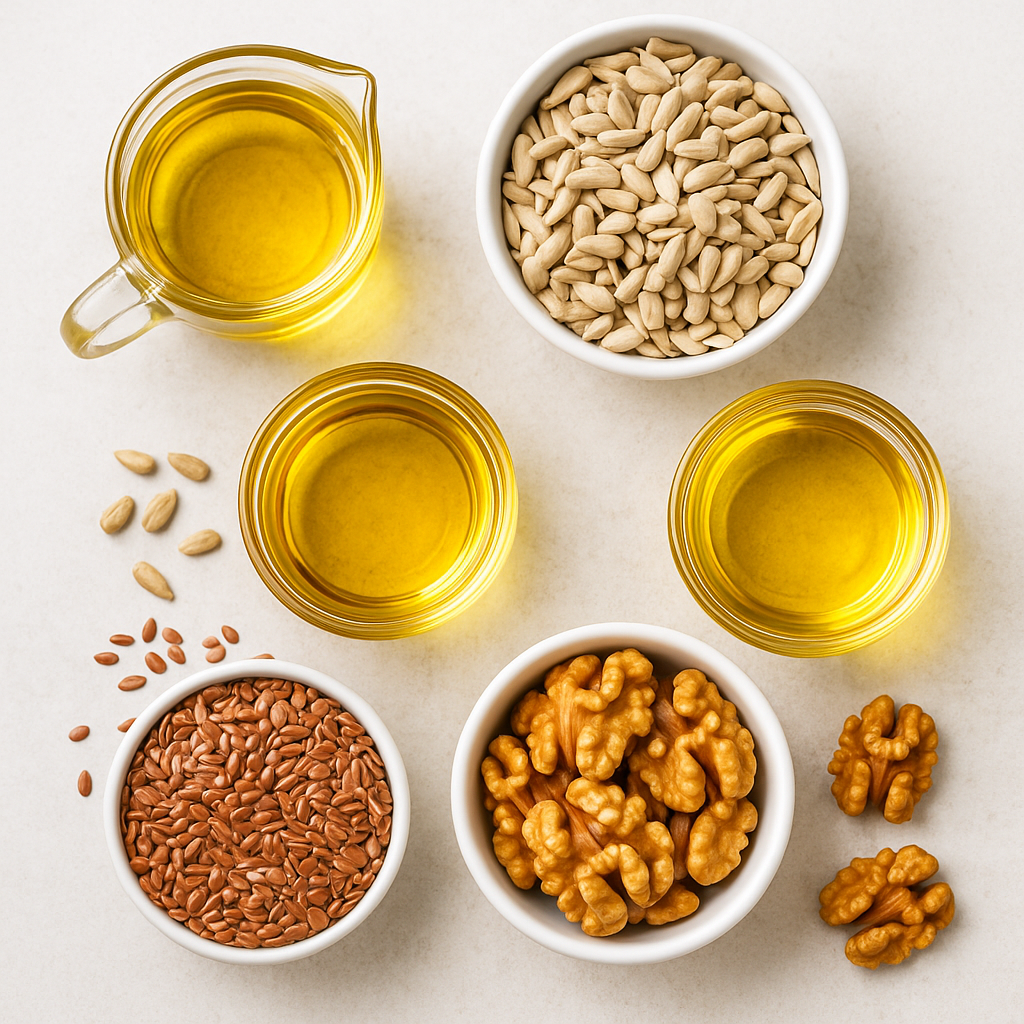
Seed Oils: What You Need to Know
Seed oils have become a controversial topic in the nutrition world. Many health influencers discourage their use, claiming they cause inflammation, contribute to chronic disease, and promote weight gain because of their calorie content. While these concerns can sound convincing, they often leave out important details about how seed oils fit into a healthy diet and how our bodies actually use the essential fatty acids they provide.
What Are Seed Oils?
Seed oils are made from the seeds of plants and are refined or purified during processing to remove contaminants, improve flavor, and extend shelf life. Common examples include canola, sunflower, sesame, flaxseed, corn, chia seed, peanut, safflower, and soybean oil (often labeled as “vegetable oil”). These oils are widely used in restaurants, packaged foods, and home kitchens.
Fats in Seed Oils
Seed oils are rich in healthy unsaturated fats—both polyunsaturated and monounsaturated fats—and low in saturated fats. Research consistently shows that replacing saturated fats (like butter) with unsaturated fats (such as seed oils) can lower the risk of cardiovascular disease, stroke, and type 2 diabetes.
-
Unsaturated fats lower LDL (“bad”) cholesterol and improve HDL (“good”) cholesterol levels.
-
Saturated fats raise LDL cholesterol, increasing the risk of heart disease and possibly Alzheimer’s disease. They are commonly found in meat, dairy, and coconut oil.
Health guidelines recommend limiting saturated fat intake to less than 13 grams per day, or under 6% of total daily calories.
Essential Fatty Acids in Seed Oils
The health benefits of seed oils largely come from two essential fatty acids: linoleic acid (omega-6) and alpha-linolenic acid (omega-3).
-
Omega-6 (linoleic acid): Found in seed oils, snack foods, fast foods, tofu, nuts, eggs, mayonnaise, and avocado oil. It supports cell structure, brain function, growth, and immune health.
-
Omega-3 (alpha-linolenic acid): Found in fatty fish (like salmon, trout, tuna, and mackerel), cod liver oil, caviar, flaxseed, chia seeds, and walnuts. Omega-3s support heart health, brain function, and help reduce inflammation.
Both omega-6 and omega-3 fats are essential—our bodies cannot make them, so we must get them from food. The ratio matters: the typical Western diet is often too high in omega-6 and too low in omega-3. For optimal health, aiming for a ratio of 4:1 (omega-6 to omega-3) or lower is recommended.
Practical Ways to Improve Your Fatty Acid Balance
-
Choose whole foods instead of highly processed ones.
-
Use seed or plant-based oils instead of butter or lard for cooking.
-
Limit fried foods.
-
Check ingredient labels and look for plant-based oils rather than animal fats.
-
Eat wild-caught fatty fish at least twice per week—or discuss omega-3 supplements with your healthcare provider.
-
Add plant-based sources of omega-3 such as walnuts, chia seeds, and flaxseeds.
Conclusion
Seed oils have been unfairly demonized in nutrition conversations. While they are calorie-dense, they also provide healthy unsaturated fats and essential fatty acids that support heart, brain, and immune health when consumed as part of a balanced diet. The key isn’t to avoid seed oils altogether—it’s to use them wisely and make sure you’re also getting enough omega-3 fats from fish or plant sources. By focusing on balance and choosing nutrient-rich foods, you can make seed oils a helpful part of your diet rather than something to fear.